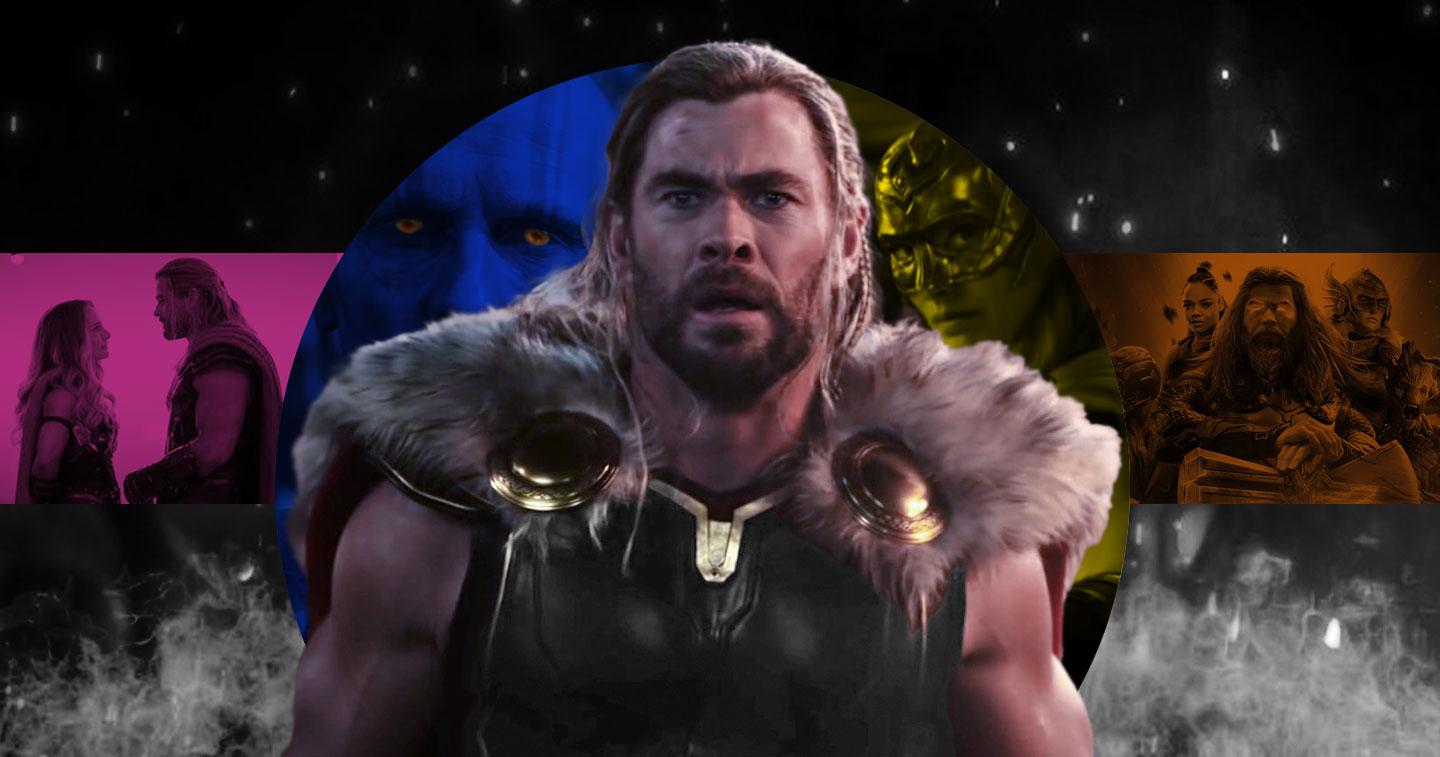MANILA, PHILIPPINES — When the first Thor movie was released in 2011, Chris Hemsworth was a relative nobody, the Thunder God was known mostly only by comic book geeks, and the Marvel Cinematic Universe was in its relative infancy. More than a decade and three movies later, Hemsworth is an international celebrity and there are more Thor films than any individual Marvel hero outside of Spider-Man.
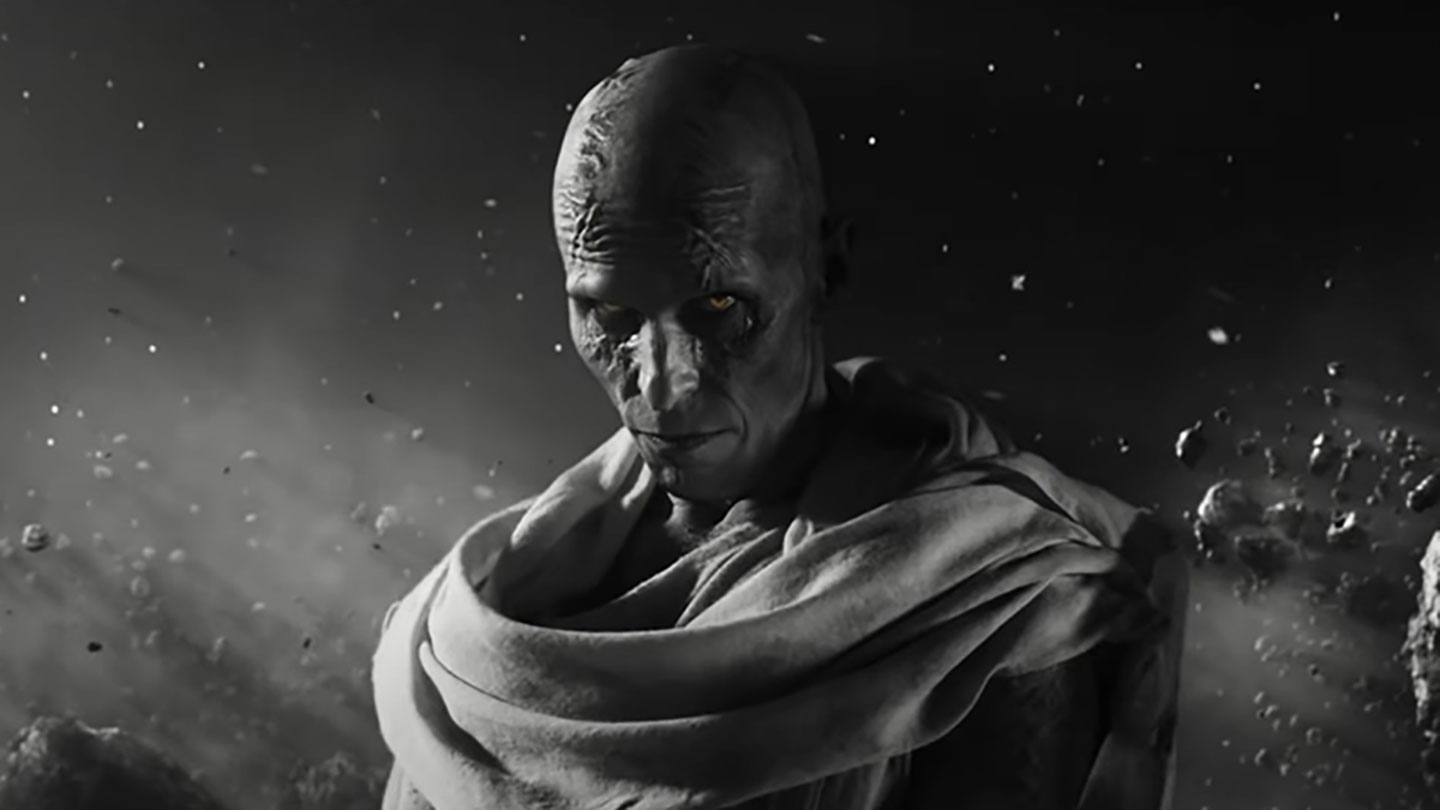
Thor: Love and Thunder begins with a man called Gorr (Christian Bale) struggling to find food for himself and his daughter Love (India Hemsworth) in an arid desert. Asking his god, Rapu, for assistance after his people have all been wiped out, Gorr is instead rejected and his daughter dies of starvation.
A god-killing weapon called the Necrosword appears and calls out to Gorr to strike down Rapu. Even as he slays the god, Gorr is cursed with his own impending death. Before that, though, Gorr promises to kill all gods across the galaxy and becomes the God Butcher.
Meanwhile, Thor finds himself in a bit of an existential crisis. After going on adventures with the Guardians of the Galaxy, the Thunder God is informed by Lady Sif of Asgard (Jaimie Alexander) of Gorr’s plans. Fearing for New Asgard, Thor heads home with his friend Korg (Taika Waititi) to meet with King Valkyrie (Tessa Thompson) just in time to find the town being attacked.
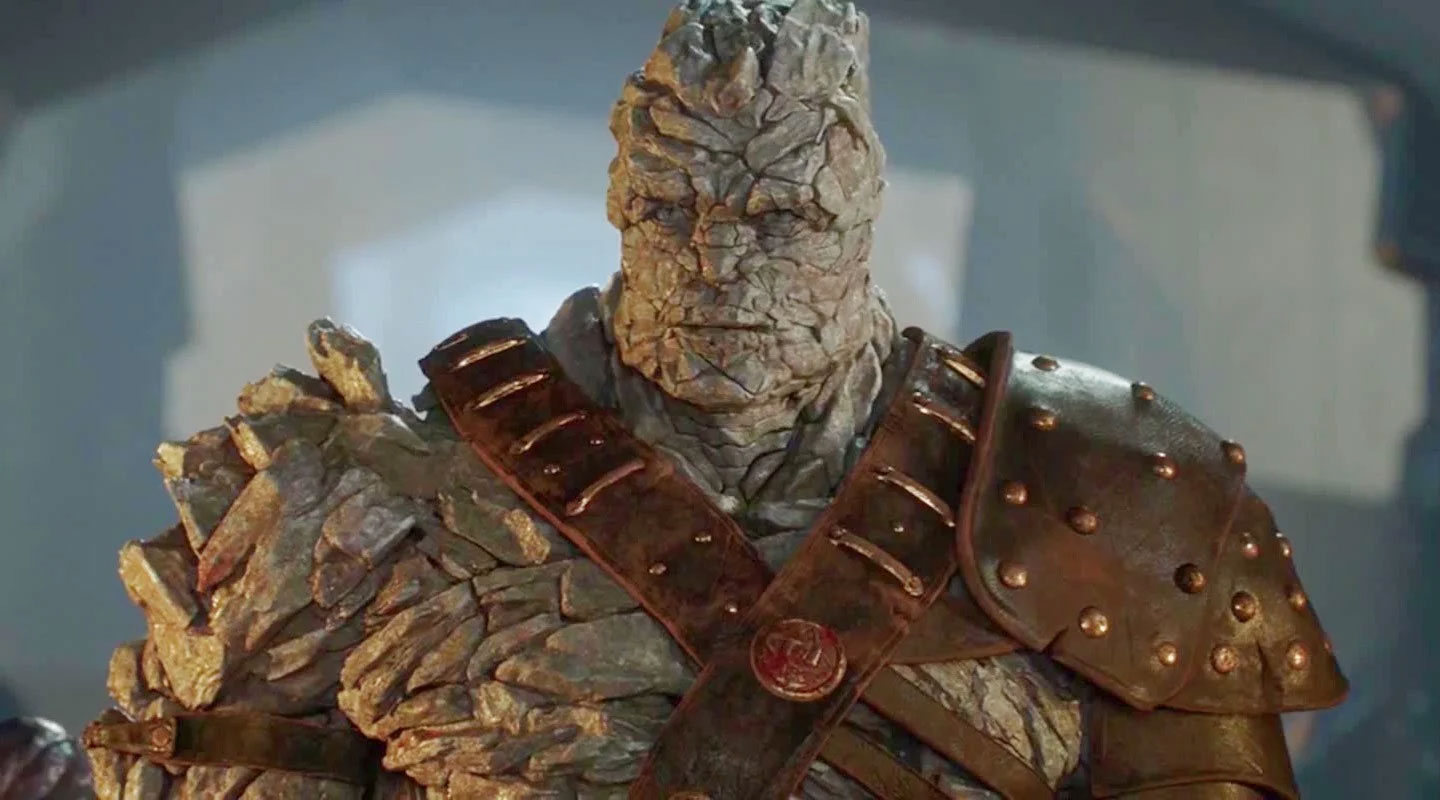
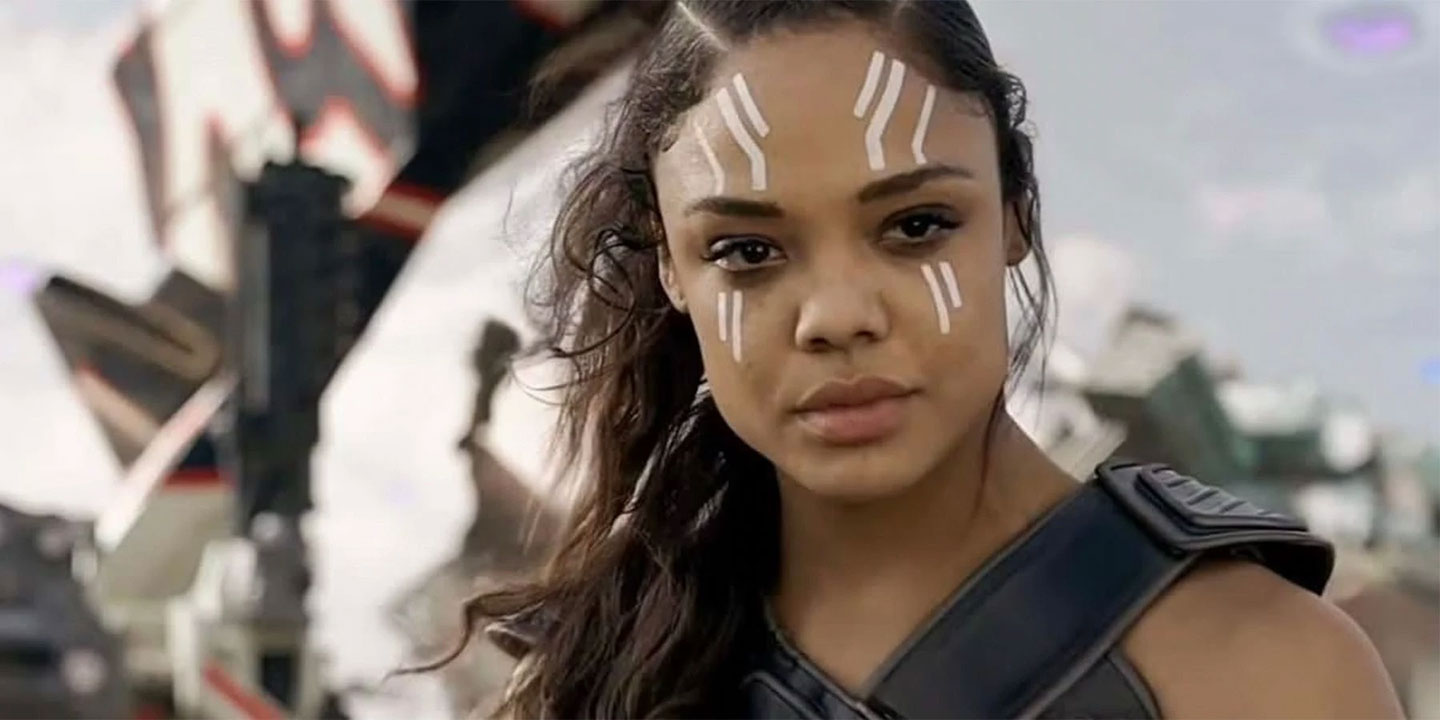
To Thor’s surprise, a female wearing a mask now wields his old hammer Mjolnir after it was previously shattered. The female reveals herself to be Thor’s ex-girlfriend Jane Foster (Natalie Portman). After being diagnosed with stage four cancer and looking for all kinds of solutions, Jane sought out Mjolnir and was shocked when the hammer reformed while giving her the power of Thor.
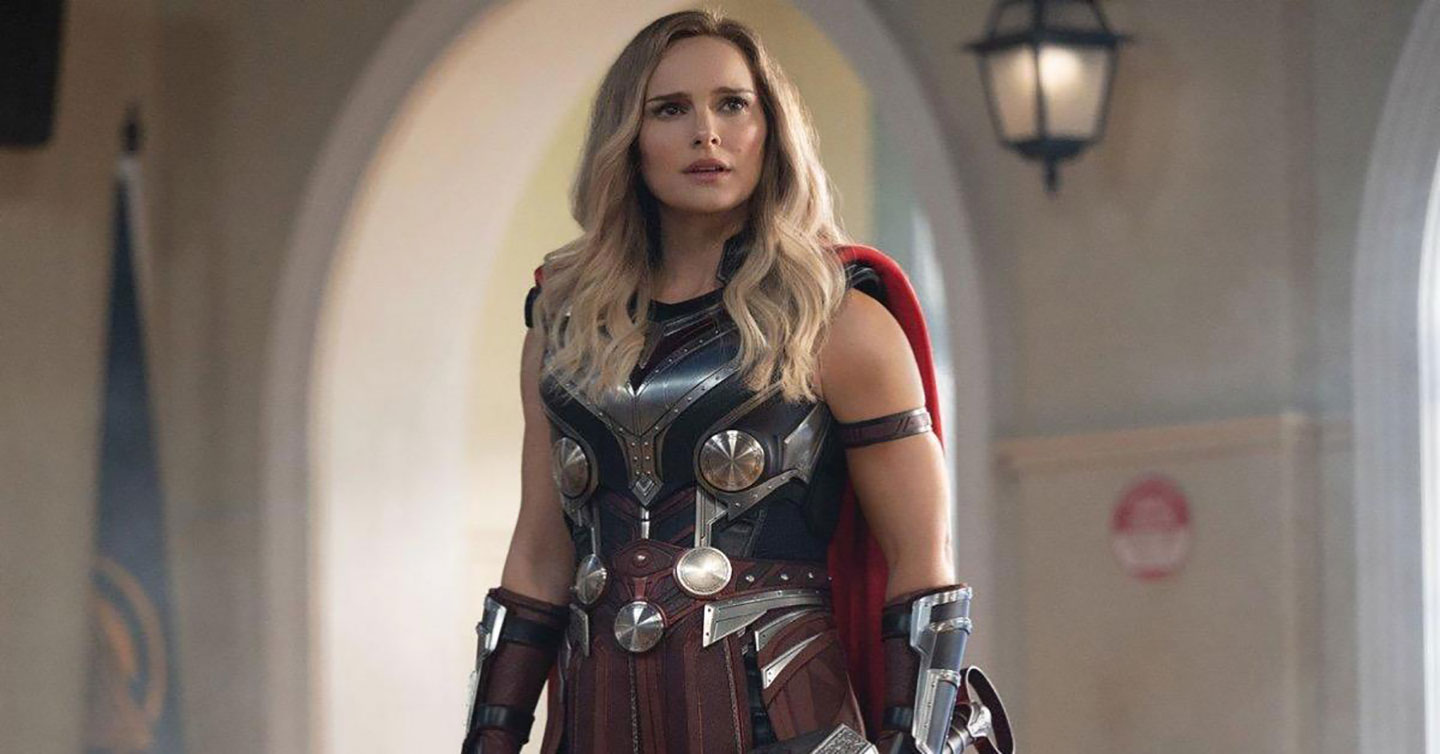
Thor, Jane, Korg, and Valkyrie repel Gorr’s attack but he takes New Asgard’s children hostage. Even as Thor feels awkward seeing his ex-girlfriend after eight years, they all need to work together to save the children from Gorr.
The last solo film featuring Hemsworth was released way back in 2017 and Thor: Ragnarok was Taika Waititi’s first directorial work for Marvel. That film signaled a change in tone for these films as what had previously been a serious take on Norse mythology and superheroics effectively became comedy and camp.
Nobody was complaining, however, with Ragnarok proving to be a huge success and Thor’s appearance in the subsequent Avengers films embracing the humorous side of the character. Hemsworth himself seemed to thrive with the shift in theme to comedy.
Thus, when Thor: Love and Thunder was announced, everyone expected the same level of silliness that Waititi and Hemsworth. That’s all fine and dandy, and this film ultimately delivers on the laughs, still, there are parts that are uneven and ultimately keep it from being as good as Ragnarok.
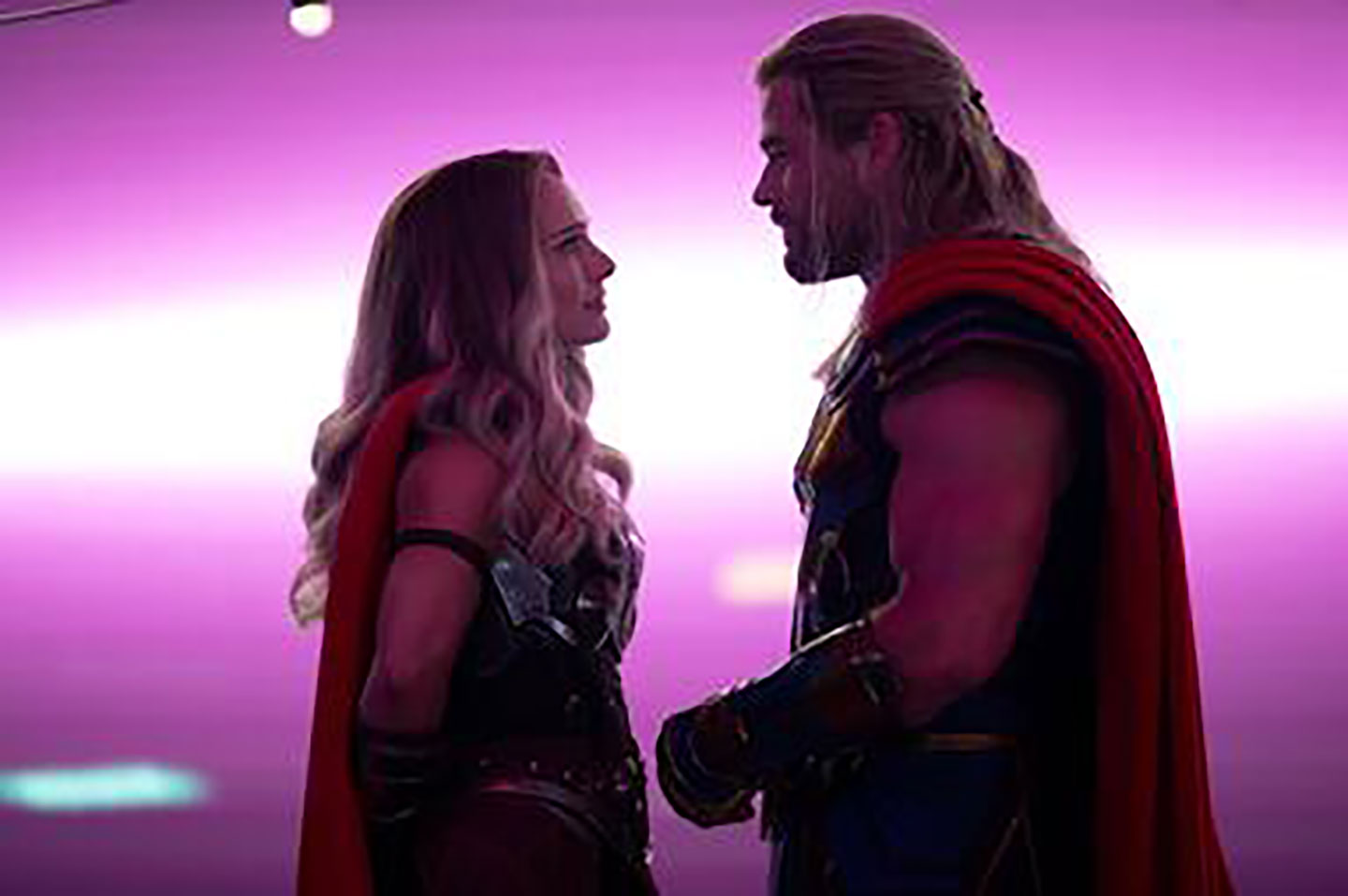
Portman’s return to the Marvel Cinematic Universe was a long time coming, and it was great to see her backstory finally developed more after only cursory attempts were done in the first two Thor films. Seeing her wield Mjolnir and revel in the power of Thor was something done back in 2014 and has been anticipated by fans of these movies for years.
Therein lies one of the disappointing things about Thor: Love and Thunder. After Jane was given so much of the spotlight, after she was finally allowed to battle as a superhero, the film ends with her dying and entering Valhalla. This was her film to carry as equally as Hemsworth does so her demise just seemed so anticlimactic, particularly since Jane continues to serve as a superhero in the comics.
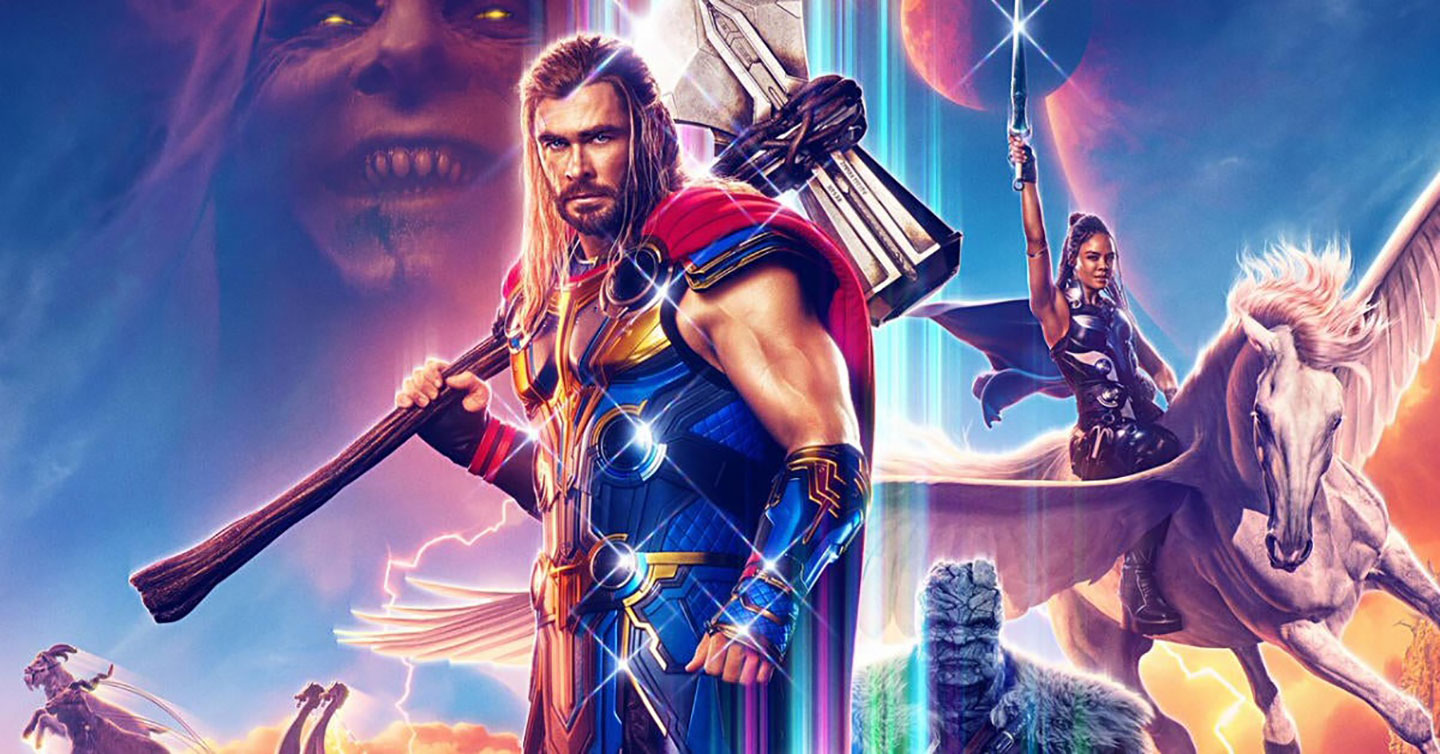
Bale’s arrival in the Marvel Cinematic Universe was equally anticipated after his stellar run as Batman in Christopher Nolan’s trilogy of films. A noted serious actor, it wasn’t a shocker to learn that he wanted to play a villain rather than a hero this time around.
Seeing Bale completely immerse himself in the role of Gorr and relish the antagonist role opposite Hemsworth, Portman, Thompson, and the rest was a treat. It is the character’s darkness and brutal execution of deities that makes him a bit of an outlier though in this film.
While Thor and everybody else are telling jokes, talking to magic hammers, and dealing with screaming flying goats, Gorr is at the opposite end, completely devoted to killing everything in his path. The chasm between their characterizations often seems too wide to bridge. Unlike the Spider-Man films where the lead protagonist is also known for non-stop jokes while squaring off against a supervillain, there just seemed to be something off about the conflict between Gorr and Thor’s crew.
It’s been 22 years since Russell Crowe played the title character of Maximus in Gladiator. While no one expects him to stay in as good a shape as he did then, his appearance here as Zeus is laughable and ridiculous. Even the accent that he adapts is a joke, taking away some of the gravitas that a character this important could have used.
Instead, Zeus is seen as just a buffoon and the scene in Omnipotence City became just a way for the group to secure his thunderbolt to battle Gorr. If Zeus’ appearance was made to introduce the character of his son Hercules (Brett Goldstein) in the end credits, then that helps lessen the disappointment of his characterization.
Since Thor: Ragnarok was able to balance the scope of mythology, cosmic space battles, and humor so well, we expected the same of Thor: Love and Thunder. Too often, though, the silliness was over the top and couldn’t find that crucial balance.
As the first Thor film without Anthony Hopkins as Odin and Tom Hiddleston as Loki, one cannot help but feel that their presence might have helped add that weight to balance out the laughs. Seeing Hemsworth talking to Mjolnir and his axe, Stormbreaker, looked silly and inconsistent particularly since he never did in any of his previous appearances.
The use of Thor’s power to empower the children in the film’s climax was cute, as was Thor’s adoption of Love like a sidekick. Perhaps Hemsworth just wanted his own daughter to join him onscreen or maybe the next step in the Thor character’s development is for him to be a parental figure. Still, it just felt that the film could simply have been better.

